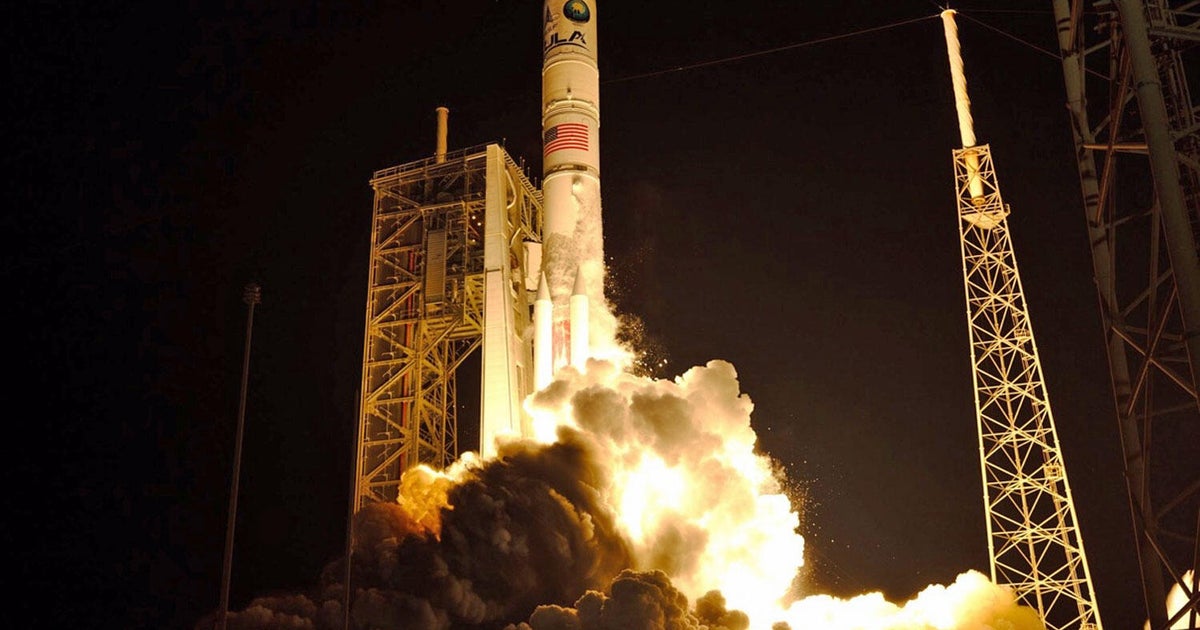Rocket Lab recovers booster in major step toward reusability
A Rocket Lab booster propelled 30 small satellites into orbit from New Zealand Thursday while its first stage parachuted to a Pacific Ocean splashdown, a key step toward perfecting systems that will enable spent stages to be plucked from mid-air by waiting helicopters.
Appropriately enough, the company's 16th mission was nicknamed "Return to Sender."
The 60-foot-tall rocket blasted off from Rocket Lab's picturesque launch complex on New Zealand's Māhia Peninsula at 9:20 p.m. EST (3:20 p.m. Friday local time) and quickly climbed away toward a 310-mile-high polar orbit.
Two-and-a-half minutes after launch, the first stage's nine Rutherford engines shut down and the booster fell away while the rocket's second stage continued the climb to orbit using a single vacuum-rated engine.
Thirty small payloads were released to fly on their own about an hour after liftoff. Among the cargo: two satellites that will test technology intended to help spacecraft safely deorbit and two others that will join a growing network of monitors providing maritime tracking.
Also on board: a small titanium doll known as Gnome Chompski, a Half-Life computer game icon from the design studio Weta Workshop, "to test and qualify a novel 3D printing technique that could be employed for future spacecraft," according to the mission press kit.
While the second stage raced toward orbit, the first stage used on-board thrusters to re-orient itself tail first for the long fall back to Earth.
Five minutes after separation, dropping at about 1.5 times the speed of sound, a drogue parachute deployed to stabilize and slow the craft before a 60-foot-wide main parachute unfurled and inflated.
The rocket splashed down in the Pacific Ocean about 13 minutes after liftoff, some 400 miles from the launch site. Recovery crews on a nearby ship planned to haul the rocket aboard and bring it back to shore for a detailed inspection.
"Splashdown of Electron's first stage confirmed!" Rocket Lab tweeted. "Recovery ops are underway."
SpaceX founder Elon Musk, chief designer of the Falcon 9, the world's first partially reusable rocket, tweeted congratulations.
"What the team achieved today in recovering Electron's first stage is no mean feat," Peter Beck, Rocket Lab founder and CEO, said in a statement. "It took a monumental effort from many teams across Rocket Lab, and it's exciting to see that work pay off in a major step towards making Electron a reusable rocket."
The long-term goal is to perfect systems that will enable the lightweight stages to be captured by a waiting helicopter before they hit the water, making refurbishment relatively straight forward. Beck said if the recovered booster is in good shape, validating the recovery plan, he would follow through with a promise to eat his hat.
SpaceX was the first company in the world to develop orbit-class commercial rockets with reusable first stages.
With the launch of a Crew Dragon spacecraft Sunday carrying four astronauts to the International Space Station, SpaceX has recovered 65 Falcon 9 first stages, 45 of them at sea on autonomous drone ships. The rocket launched Sunday returned to Port Canaveral Thursday afternoon.
Other companies are racing to develop their own recovery technologies, including United Launch Alliance, builder of the Vulcan rocket that will replace the company's Atlas 5 and Delta 4 boosters, and Blue Origin, builder of yet-to-fly New Glenn rockets.
Rocket Lab specializes in launching small payloads to orbit that do not require larger, much more expensive rockets. Company officials say perfecting first stage recovery will reduce costs and increase the availability of flight hardware for a more rapid launch cadence.





